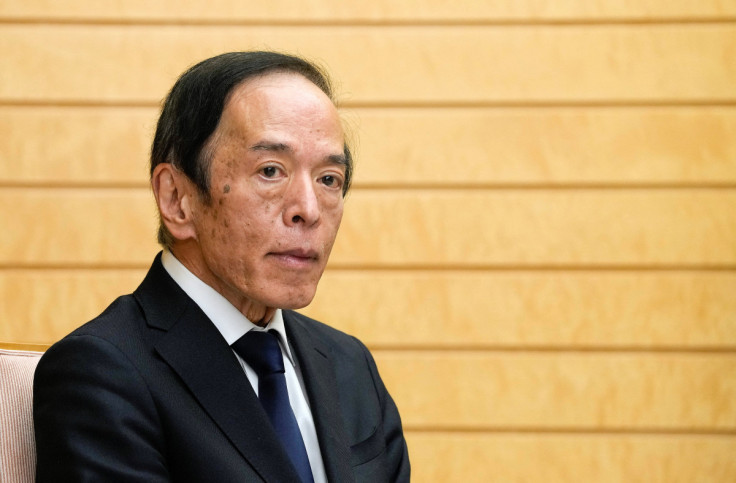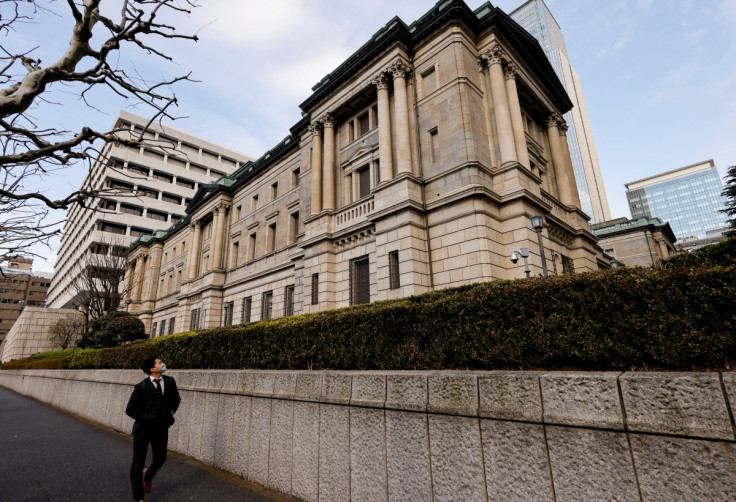BOJ To Discuss Conducting Policy Examination At Ueda's Debut Meeting - Nikkei

The Bank of Japan (BOJ) will discuss on Friday conducting a comprehensive examination of its past monetary easing steps and revise its guidance on the future policy path, the Nikkei newspaper reported.
While the central bank is widely expected to keep yield curve control (YCC) steady, any such move could signal new Governor Kazuo Ueda's intention to gradually move towards an exit from prolonged, ultra-low interest rates.
In the review, the BOJ will seek to clarify the effectiveness and side effects of its monetary easing steps, and make use of the findings in future policy conduct, the Nikkei reported, without citing sources.
The yield on the 10-year Japanese government bond (JGB) yield briefly rose to 0.465% on Friday, while the dollar briefly fell to 133.60 yen from around 134 after the report.
Sources have told Reuters the BOJ may conduct a review of the impact of its monetary policy steps it has taken over the longer term, an idea recently flagged by Ueda, and drop references to the COVID-19 in its forward guidance.
The board may also modify one of its forward guidance pledges to take additional monetary easing steps "without hesitation" with an eye on the impact of the pandemic, the sources have said.
At the meeting Ueda chairs just three weeks into his term, the BOJ is expected to maintain its short-term interest rate target of -0.1% and a pledge to guide the 10-year bond yield around zero under its YCC policy.
Forward guidance, or a pledge central banks make on future policy, is likely a key tool for Ueda, who as a BOJ board member invented the bank's first such guidance in 1999 with a promise to keep zero rates until deflation is overcome.
Enhancing the BOJ's communication with markets may be the first task the former academic will work on in differentiating himself from his predecessor Haruhiko Kuroda, some analysts say.
However, broadening inflationary pressures could test Ueda's communication skills by casting doubt on the BOJ's argument recent cost-driven price pressures will soon peter out.
Core consumer inflation in Japan's capital hit 3.5% in April, beating expectations and exceeding the BOJ's 2% target, while an index stripping away fuel costs rose at the fastest pace in four decades, data showed on Friday.
Much is riding on how the BOJ manages an eventual transition away from the loose policy of the Kuroda era, with global investors worried higher Japanese interest rates could trigger capital flight and reshape financial markets in ways they are not prepared for.
The BOJ's forceful defense of an implicit 0.5% cap set for the 10-year bond yield has drawn criticism for distorting the shape of the yield curve and draining bond market liquidity, heightening expectations that Ueda will soon phase out YCC.
The International Monetary Fund has urged the BOJ to allow long-term yields to move more flexibly around its target with a tweak to YCC, to make a future exit from easy policy smoother.
Aside from Ueda's comments, hints on the policy outlook could come from the BOJ's fresh quarterly growth and inflation forecasts due out on Friday, which will include for the first time projections extending through fiscal 2025.
The new estimates will indicate how the BOJ sees the balance between headwinds from slowing overseas growth, and recent signs of broadening wage growth, analysts say.
Under current projections made in January, the BOJ expects core consumer inflation to hit 1.6% this year and 1.8% in fiscal 2024. It expects the economy to expand 1.7% this fiscal year before slowing to 1.1% the following year.
Many analysts expect the BOJ to project inflation to hover near, but stay slightly below, the bank's 2% target for both fiscal 2024 and 2025.

© Copyright Thomson Reuters {{Year}}. All rights reserved.





















